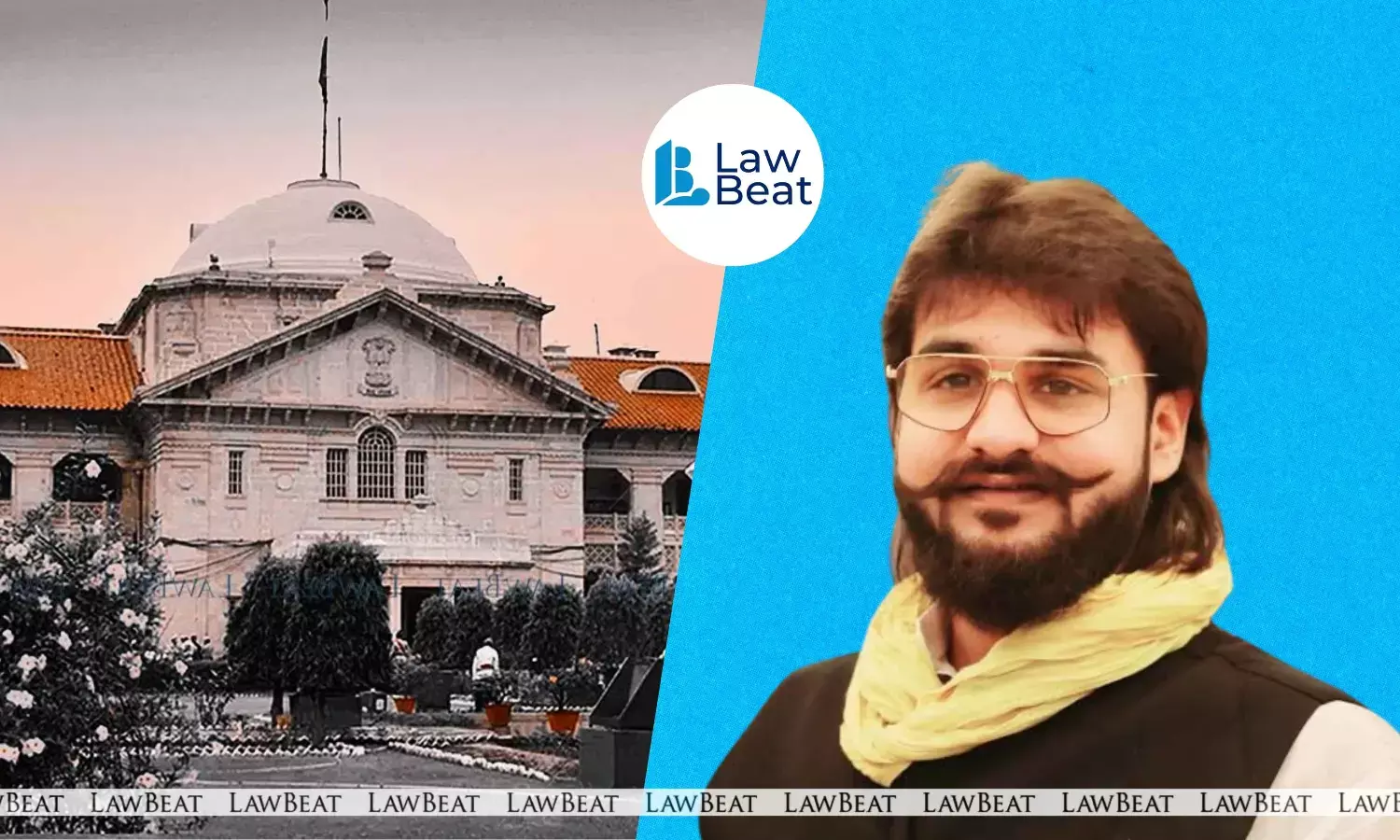Big Relief for Abbas Ansari: Allahabad HC Suspends Conviction, Restores His MLA Status

In a significant relief for legislator Abbas Ansari, the Allahabad High Court on August 20, 2025, suspended his conviction in a criminal case that had cost him his seat in the Uttar Pradesh Assembly.
Justice Sameer Jain, while allowing Ansari’s revision petition, held that the refusal of the sessions court to stay his conviction amounted to “injustice not only to the revisionist but also to the electorate who elected him".
Ansari, son of former MP late Mukhtar Ansari, was convicted by a Mau court on May 31 this year for offences under Sections 171F (undue influence at elections), 189 (threat to public servant), 153A (promoting enmity), 506 (criminal intimidation), and 120B (criminal conspiracy) of the Indian Penal Code. The trial court awarded him multiple sentences, including two years’ simple imprisonment under Sections 189 and 153A, and fines totaling Rs. 8,000.
The conviction triggered his immediate disqualification as a Member of the Legislative Assembly under Section 8 of the Representation of People Act, 1951. While the sessions court on July 5 stayed the sentence, it declined to suspend the conviction itself. This decision left Ansari disqualified from office and barred from contesting elections for six years.
Challenging this, Ansari's counsel argued before the High Court that the conviction was politically motivated and based on insufficient evidence. His counsel maintained that the speech attributed to him, i.e., threatening district officials during an election meeting, could not constitute promotion of enmity under Section 153A, nor undue influence under Section 171F. It was further submitted that awarding the maximum sentence of two years under Section 189 was unwarranted, particularly given its sweeping disqualification consequences.
The State, represented by Advocate General Ajay Mishra and other law officers, strongly opposed the plea. They contended that public representatives must maintain unimpeachable conduct and that conviction under electoral and harmony-related offences strikes at the heart of democratic integrity. The prosecution also cited Ansari’s criminal background, noting he faced at least 11 other cases, to argue against suspension of conviction.
The High Court, however, found merit in Ansari’s challenge. It observed that prima facie the ingredients of Sections 153A, 171F and 189 were not clearly made out from the evidence. Merely by threatening district administration in a public speech, it cannot be said that the revisionist committed an offence of promoting enmity or undue influence at elections, the court held.
Justice Jain further noted that the trial court had failed to adequately justify awarding the maximum two-year sentence under Section 189 IPC, which directly resulted in Ansari’s disqualification. “If even a day less than two years had been awarded, disqualification under Section 8(3) of the Representation of People Act would not have applied,” he pointed out.
Highlighting the wider democratic implications, court remarked that non-suspension of conviction not only caused “irreversible prejudice” to Ansari’s political career but also deprived his constituents of representation in the Assembly. Drawing on the Supreme Court’s rulings in the cases of Rahul Gandhi and Afzal Ansari, the bench held that suspension of conviction is permissible in “rare and exceptional” circumstances to prevent injustice.
"Further, however, the purpose of introduction of Section 8 R.P. Act is to resolve the issue of criminalization of politics and to depoliticizing criminality but while deciding the issue at hand, it is also necessary to consider the other facts and circumstances of the case like what are the actual allegations against the person who has been disqualified due to his conviction and whether his criminal antecedents of such nature which threatens the very idea of democracy," court said.
Accordingly, the High Court set aside the sessions court’s July 5 order and suspended Ansari’s conviction pending disposal of his appeal. The decision restores his eligibility to hold office and contest elections, though the merits of his conviction will ultimately be decided in appeal.
Case Title: Abbas Ansari vs. State of U.P. and Another
Order Date: August 20, 2025
Bench: Justice Sameer Jain
